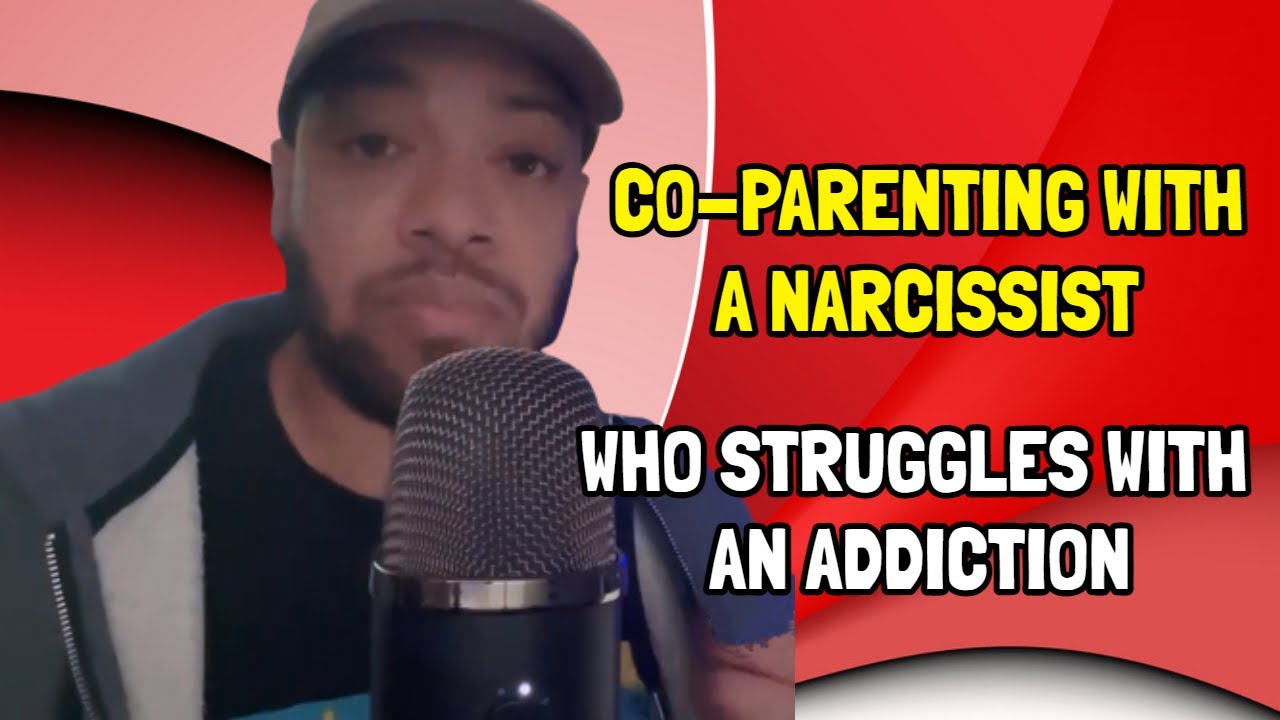Parenting is undeniably challenging, but co-parenting with an addict introduces unique obstacles that demand tailored strategies and robust support systems. This article delves into crucial insights, practical solutions, and real-life examples to help parents manage co-parenting with an addict effectively.
Understanding the Challenges of Co-parenting with an Addict
Co-parenting with an addict presents specific challenges that can feel overwhelming. Understanding these challenges is the first step in devising effective strategies.
Emotional Turmoil and Instability
Addiction often leads to unpredictable behavior, emotional volatility, and periods of unavailability that can disrupt the family dynamic. For instance, celebrities like Britney Spears have publicly struggled with addiction and its impacts on their family roles. These emotional strains can lead to a lack of consistency in the child’s life, which can be destabilizing.
Legal Complications
Legal battles are common when one parent is struggling with addiction. The case of Brad Pitt and Angelina Jolie provides a high-profile example where addiction issues have led to complex legal disputes over child custody. Ensuring the child’s safety and best interests becomes the court’s primary concern, sometimes resulting in supervised visitations or mandated treatments.
Strategies for Effective Co-parenting with an Addict
Given these challenges, certain strategies can help mitigate the impact of addiction on co-parenting.
Establish Clear Boundaries and Expectations
Setting clear boundaries is essential. Inform the addicted parent about non-negotiable expectations concerning their involvement. This can include sobriety conditions during visits or adherence to treatment programs. Kate Moss and Pete Doherty negotiated their co-parenting roles amidst struggles with substance abuse, emphasizing transparency and cooperation wherever possible.
Develop a Comprehensive Parenting Plan
Creating a detailed parenting plan that addresses day-to-day responsibilities, visitation schedules, and emergency protocols can bring a semblance of order. Programs like ‘Wevorce’ specialize in facilitating amicable divorces and co-parenting plans, emphasizing the child’s well-being.
Seek Professional Support
Engagement with therapists, addiction specialists, and legal advisors can provide vital support. For instance, organizations like Al-anon offer family groups specifically designed to support family members of addicts, providing tools to cope and communicate effectively.
Encourage the ‘Dry Drunk’ Parent to Seek Support
Encourage the ‘dry drunk’ parent to seek support, whether through therapy, support groups, or other recovery resources. This not only aids their recovery but also promotes a healthier co-parenting environment.
Educate and Prepare
Educate yourself about addiction and recovery. Knowledge is power, and understanding what your co-parent is going through can help in planning and reacting appropriately.
| Category | Description |
| Support Systems | Importance: Vital for maintaining both mental health and a functional co-parenting environment. |
| Actions: Encourage therapy, support groups, and other recovery resources. | |
| Education and Preparation | Importance: Crucial for understanding addiction and recovery stages. |
| Actions: Educate yourself through reliable sources, books, and workshops on addiction. | |
| Communication Challenges | Resentment, Anger, and Betrayal: Often arise due to past hurts and hinder effective co-parenting. |
| Actions: Prioritize child wellbeing over personal grievances, practice active listening, and seek mediation. | |
| Neglect and Absence | Risks: Parent may neglect responsibilities or leave children unsupervised to obtain or use substances. |
| Actions: Implement reliable safety plans and possibly involve social services for child protection. | |
| Sleep and Supervision Issues | Risks: Falling asleep under depressants can lead to dangerous unsupervised periods for the child. |
| Actions: Create a parenting plan that minimizes the risk by scheduling supervised visitations. | |
| Narcissistic Behaviors | Risks: Boundaries may be ignored and can lead to inconsistent parenting practices. |
| Actions: Establish firm boundaries, use co-parenting apps to document interactions, and consider legal advice. | |
| Competition Over Child’s Time | Risks: Striving for the “fun house” prioritizes competition over child wellbeing. |
| Actions: Create a balanced schedule and agree on consistent rules between homes. | |
| Legal Considerations | Importance: To ensure child protection, legal custody arrangements must be carefully documented. |
| Actions: Work with a family lawyer to draft and enforce a clear co-parenting agreement. | |
| Child’s Mental Health | Importance: Witnessing addiction can affect a child’s emotional and psychological health. |
| Actions: Enroll the child in counseling and provide a stable, loving environment as a constant. | |
| Support for the Sober Parent | Importance: To manage stress and avoid burnout, ensuring self-care and support systems are in place. |
| Actions: Seek personal therapy and connect with support groups for parents of children with addiction-affected partners. |
Fostering a Healthy Environment for the Child
While managing the intricacies of co-parenting, maintaining a nurturing environment for the child is paramount.
Prioritize the Child’s Emotional Well-being
Ensure the child has access to counseling and support to process their feelings. The National Association for Children of Addiction (NACoA) is an excellent resource offering programs tailored to children of addicted parents.
Provide Consistent Love and Support
Stability and consistency from the non-addicted parent can make a significant difference in the child’s life. Taking a page from Demi Moore’s handling of her children during her tumultuous phases, demonstrating unwavering support and maintaining open lines of communication are crucial.
Avoid “Bad” Co-parenting Behaviors
Resist the urge to prioritize resentments, anger, and competition over the child’s well-being. Avoid being the “fun house” at the expense of consistency and structure.
Real-Life Examples of Successful Co-parenting with an Addict
Learning from real-life examples provides valuable insights and inspiration.
Drew Barrymore and her Co-parenting Journey
Drew Barrymore has been open about her struggles with addiction and how they influenced her parenting. Her commitment to treatment and transparent communication with her ex-husband, Will Kopelman, allowed for a balanced co-parenting dynamic that prioritized their children’s needs.
Robert Downey Jr.’s Redemption and Co-parenting
Robert Downey Jr.’s road to recovery is another inspiring story. His commitment to sobriety and reinvestment in his family life demonstrates how overcoming addiction and dedicating oneself to co-parenting duties can result in positive outcomes for the family unit.
Support Systems and Resources for Co-parenting with an Addict
Utilizing available resources can ease the challenges associated with co-parenting an addict.
Support Groups and Counseling
Joining support groups like ‘Parents of Addicted Loved Ones’ (PAL) can provide a network of individuals facing similar situations. Counseling services for both the parent and child can also be invaluable in navigating emotional stress.
Legal Aid Services
Engaging with legal services to understand your rights and options is crucial. Organizations such as Legal Aid society provide resources and representation for those facing custody disputes involving addiction.
Final Thoughts on Co-parenting with an Addict
Co-parenting with an addict is undoubtedly fraught with complexities. However, with informed strategies, appropriate support systems, and unwavering commitment to the child’s well-being, finding a balance is achievable. The journeys of public figures and the support of dedicated organizations serve as reminders that, though challenging, effective co-parenting is possible even in the face of addiction. Prioritizing clear communication, legal clarity, emotional support, and professional guidance can provide the structure needed to navigate this difficult path.
By leveraging resources like the printable serenity prayer, understanding What Is a Walk-off home run, and learning about modular Homes in Michigan, parents can find inspiration and tools to foster a more stable and nurturing environment for their children. Let’s continue to support and uplift each other through these challenging times, embodying both the compassion of Brené Brown and the resilience of Elizabeth Vargas.
Co-parenting with an Addict: Support and Solutions
Finding Your Balance
Co-parenting with an addict can sometimes feel like you’re walking a tightrope. It’s an ongoing juggling act, and quite honestly, staying grounded is crucial. One helpful strategy for managing this tricky situation is prioritizing your own well-being. Remember, Self-care For Mothers is not just a buzzword but a lifeline, offering practical ways to recharge and maintain your mental fortitude. This approach doesn’t just benefit you, but it also indirectly supports your co-parenting efforts by ensuring you’re in the best possible form to tackle daily challenges.
Maternal Health Matters
Did you know that maternal mental health is directly linked to effective parenting? Yep, it’s true! The better your mental state, the more adept you’ll be at managing stress and providing a stable environment for your kiddos. You might find it surprising, but a mental health break involving simple hobbies, like reading books from various genres such as “, can be immensely rejuvenating. Diversifying your mental energy can offer a much-needed escape, enabling you to return with a refreshed perspective.
Rebuilding for the Future
Rebuilding after addiction isn’t a walk in the park, but it’s far from impossible. It’s fascinating to see how resilience can turn dire situations around. Some parents have found that creating structured routines with clear, consistent expectations helps co-parenting run smoother. These habits not only create a secure environment for children but also pave the way for an efficient partnership with your co-parent. However, don’t underestimate the power of a supportive community in this rebuilding phase. Leaning on resources designed for rebuilding after addiction can provide invaluable support and guidance.
Balancing these dynamics may feel overwhelming, but with a sprinkle of trivia and practical advice, you’re armed with strategies to co-parent effectively. So, take a moment, breathe, and remember you’re not in this alone – countless others are navigating the same turbulent waters, and together, you can find calmer seas.

How do you co-parent with a recovering addict?
Supporting a co-parent who’s a recovering addict means encouraging them to seek support through therapy, support groups, or other recovery resources. This helps their recovery and creates a healthier environment for co-parenting. Plus, educating yourself about addiction and recovery can make a big difference.
What is considered bad co-parenting?
Bad co-parenting happens when parents prioritize their grudges, anger, and competitiveness over the child’s wellbeing. This often results in neglecting the child’s needs and trying to outdo each other rather than working together.
How does substance abuse affect parenting?
Substance abuse severely impacts parenting as it leads to neglect, forgetting responsibilities, and leaving children unattended. Parents may also fall asleep under the influence and fail to supervise or protect their kids properly, creating unsafe environments.
What is co-parenting with a narcissist like?
Co-parenting with a narcissist means dealing with someone who may ignore or push your boundaries and show less empathy or respect in their parenting style. They often get angry at feedback and are hard to compromise with, making the co-parenting relationship challenging.
What are three codependent behaviors in families with addiction?
In families with addiction, common codependent behaviors include enabling the addict, neglecting their own needs to focus on the addict, and trying to control situations to avoid conflicts or manage crises.
When one parent is an enabler?
When one parent is an enabler, they excuse or deny the addict’s behavior, making it easier for the addiction to continue. This can create a harmful environment and hinder the addict’s recovery process.
What is the biggest mistake in custody battle?
The biggest mistake in a custody battle is putting personal grievances above the child’s best interests. Parents should focus on what’s best for the child rather than using the battle as a platform to air resentments.
What is inappropriate co-parenting while in a relationship?
Inappropriate co-parenting while in a relationship involves actions like badmouthing the other parent, exposing the child to conflict, and failing to maintain consistent rules and routines, which can harm the child’s emotional wellbeing.
What is a manipulative co-parent?
A manipulative co-parent uses tactics like guilt-tripping, making false accusations, or trying to control the parenting situation to their advantage, often disregarding the child’s best interests.
What are the psychological effects of addicts on children?
Children of addicts often suffer emotionally and psychologically, developing issues like anxiety, depression, and trust problems. They may also struggle with self-esteem and relationship difficulties, deeply affecting their development.
What are the problems with children of parents with substance abuse?
Kids with parents who abuse substances face problems like neglect, inconsistent parenting, and emotional instability. They often take on adult responsibilities too early and might have a higher risk of developing their own substance use issues.
Is addiction genetic?
Addiction has a genetic component, meaning if a parent has an addiction, their children may have an increased risk of developing an addiction themselves. However, environment and personal choices also play significant roles.
What is gaslighting in co-parenting?
Gaslighting in co-parenting involves one parent manipulating the other to make them question their memory, perception, or sanity. It’s a tactic to gain control and undermine the other parent’s authority or credibility.
How do you outsmart a narcissist coparent?
Outsmarting a narcissist co-parent requires setting firm boundaries, documenting interactions, and staying calm in the face of provocations. It’s essential to focus on the child’s needs and avoid being drawn into manipulative games.
How to coparent with a toxic ex?
Co-parenting with a toxic ex means maintaining clear boundaries, communicating effectively without engaging in conflict, and focusing on the children’s needs. It’s important to seek support and stay emotionally grounded.
What is the Sinclair method?
The Sinclair Method is a treatment for alcohol addiction that involves taking medication to reduce cravings and gradually extinguish the addictive behavior by eliminating the positive reinforcement of drinking.
Can addiction be passed down to children?
While addiction can be passed down genetically, it’s not a guaranteed fate. Environmental factors, upbringing, and individual choices significantly influence whether an addiction develops.
How to protect a child from an alcoholic father?
Protecting a child from an alcoholic father involves setting clear and consistent boundaries, seeking legal advice if necessary, and ensuring the child has a safe and stable environment. Support from counselors or therapists can also be beneficial.
What is the power of family in addiction recovery?
The power of family in addiction recovery is immense, offering emotional support, stability, and encouragement. Families can create a nurturing environment that promotes recovery and supports the addict’s journey toward sobriety.



























